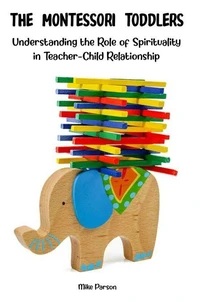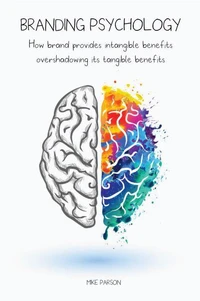The Depth Psychology of Death Approaching the Grief and Understanding the Role of Death Through the depth Psychology
Par :Formats :
Disponible dans votre compte client Decitre ou Furet du Nord dès validation de votre commande. Le format ePub est :
- Compatible avec une lecture sur My Vivlio (smartphone, tablette, ordinateur)
- Compatible avec une lecture sur liseuses Vivlio
- Pour les liseuses autres que Vivlio, vous devez utiliser le logiciel Adobe Digital Edition. Non compatible avec la lecture sur les liseuses Kindle, Remarkable et Sony
 , qui est-ce ?
, qui est-ce ?Notre partenaire de plateforme de lecture numérique où vous retrouverez l'ensemble de vos ebooks gratuitement
Pour en savoir plus sur nos ebooks, consultez notre aide en ligne ici
- FormatePub
- ISBN8201146122
- EAN9798201146122
- Date de parution14/08/2021
- Protection num.pas de protection
- Infos supplémentairesepub
- ÉditeurJL
Résumé
Grief is a natural response to loss. It's the emotional suffering you feel when something or someone you love is taken away. Often, the pain of loss can feel overwhelming. You may experience all kinds of difficult and unexpected emotions, from shock or anger to disbelief, guilt, and profound sadness. The pain of grief can also disrupt your physical health, making it difficult to sleep, eat, or think straight.
These are normal reactions to loss-and the more significant the loss, the more intense your grief will be. Coping with the loss of someone or something you love is one of life's biggest challenges. You may associate grieving with the death of a loved one-which is often the cause of the most intense type of grief-but any loss can cause griefAlthough the experience of grief and how one grieves may be unique to the individual, they are influenced by relational, cultural, and spiritual beliefs.
Despite a universal familiarity with death and grief, the capacity to articulate the meaning of grief challenges even premier scholars in the fields of psychology, sociology, theology, and anthropology. This book has been motivated and inspired by a lifetime relationship with death and the awareness that our contemporary understanding of dying, which lacks a multivalent language, is inadequate.
These are normal reactions to loss-and the more significant the loss, the more intense your grief will be. Coping with the loss of someone or something you love is one of life's biggest challenges. You may associate grieving with the death of a loved one-which is often the cause of the most intense type of grief-but any loss can cause griefAlthough the experience of grief and how one grieves may be unique to the individual, they are influenced by relational, cultural, and spiritual beliefs.
Despite a universal familiarity with death and grief, the capacity to articulate the meaning of grief challenges even premier scholars in the fields of psychology, sociology, theology, and anthropology. This book has been motivated and inspired by a lifetime relationship with death and the awareness that our contemporary understanding of dying, which lacks a multivalent language, is inadequate.
Grief is a natural response to loss. It's the emotional suffering you feel when something or someone you love is taken away. Often, the pain of loss can feel overwhelming. You may experience all kinds of difficult and unexpected emotions, from shock or anger to disbelief, guilt, and profound sadness. The pain of grief can also disrupt your physical health, making it difficult to sleep, eat, or think straight.
These are normal reactions to loss-and the more significant the loss, the more intense your grief will be. Coping with the loss of someone or something you love is one of life's biggest challenges. You may associate grieving with the death of a loved one-which is often the cause of the most intense type of grief-but any loss can cause griefAlthough the experience of grief and how one grieves may be unique to the individual, they are influenced by relational, cultural, and spiritual beliefs.
Despite a universal familiarity with death and grief, the capacity to articulate the meaning of grief challenges even premier scholars in the fields of psychology, sociology, theology, and anthropology. This book has been motivated and inspired by a lifetime relationship with death and the awareness that our contemporary understanding of dying, which lacks a multivalent language, is inadequate.
These are normal reactions to loss-and the more significant the loss, the more intense your grief will be. Coping with the loss of someone or something you love is one of life's biggest challenges. You may associate grieving with the death of a loved one-which is often the cause of the most intense type of grief-but any loss can cause griefAlthough the experience of grief and how one grieves may be unique to the individual, they are influenced by relational, cultural, and spiritual beliefs.
Despite a universal familiarity with death and grief, the capacity to articulate the meaning of grief challenges even premier scholars in the fields of psychology, sociology, theology, and anthropology. This book has been motivated and inspired by a lifetime relationship with death and the awareness that our contemporary understanding of dying, which lacks a multivalent language, is inadequate.

















